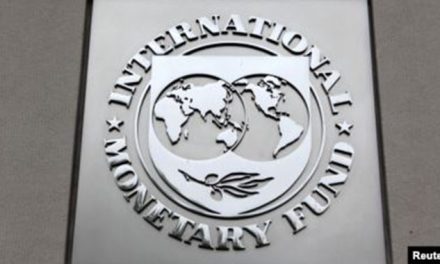Next week, U.S. Secretary of State Antony Blinken will embark on his fourth trip to Africa, visiting Cape Verde, Ivory Coast, Nigeria, and Angola. This trip follows the 2022 U.S.-Africa Leaders Summit and aims to highlight the accelerated U.S.-Africa partnership in areas such as climate, food, and health security. As the State Department spokesperson mentioned, Blinken will emphasize the future-focused economic partnership and the United States’ investments in African infrastructure to boost trade, create jobs, and help Africa compete globally. While countering China’s influence on the continent may be a focus in the media, the trip aims to showcase the positive aspects of African engagement and highlight the capacity of African youth. Additionally, Blinken hopes to attend a match during the Africa Cup of Nations football tournament in the Ivory Coast and will address security issues in the Sahel and coastal West Africa. Overall, the trip underscores the United States’ commitment to Africa and its importance for American interests.

Purpose of the Trip
Secretary of State Antony Blinken’s upcoming trip to Cape Verde, Ivory Coast, Nigeria, and Angola serves several important purposes. First and foremost, the trip aims to highlight the strong partnership between the United States and Africa. It will emphasize the future-focused economic partnership and showcase U.S. investment in African infrastructure. This visit is seen as a continuation of the momentum generated by the 2022 U.S.-Africa Leaders Summit in Washington, which was followed by 17 Cabinet-level official visits last year.
Countries Visited
During his six-day trip, Secretary Blinken will be visiting four African countries: Cape Verde, Ivory Coast, Nigeria, and Angola. These countries were specifically chosen to represent the diverse regions and economic strengths of the continent. Each country presents unique opportunities for collaboration and engagement.
Previous Official Visits
In 2023, the United States saw a significant increase in official visits to Africa, with 17 Cabinet-level officials making trips to various countries on the continent. These visits were a follow-up to the highly successful U.S.-Africa Leaders Summit held in Washington in 2022. The visits demonstrated the United States’ commitment to strengthening its partnerships in Africa and deepening diplomatic ties.
President Biden’s Desire to Visit Africa
President Joe Biden has expressed his interest in visiting Africa this year, although no definite plans have been announced yet. This desire reflects the importance of Africa as a strategic partner for the United States and the administration’s commitment to fostering stronger relationships with African nations.

Key Focus Areas
During his trip, Secretary Blinken will focus on several key areas of importance. Climate, food security, and health security are top priorities, recognizing their crucial role in addressing the most pressing challenges facing both Africa and the United States. Additionally, the trip will highlight the economic partnership between the U.S. and Africa, with an emphasis on infrastructure investment to promote two-way trade, job creation, and global competitiveness for African nations.
Media Preoccupation with China’s Influence
Contrary to media preoccupation, countering China’s influence on the African continent is not the primary focus of Secretary Blinken’s trip. While acknowledging China’s presence in Africa, Assistant Secretary of State for African Affairs, Molly Phee, emphasized that the United States sees Africa as important for its own sake and for American interests, regardless of China’s involvement. The trip aims to highlight the positive engagements and showcase the capacity and potential of African youth, as well as forward-looking partnerships between the U.S. and African nations.

Highlighting Positive Engagements
Secretary Blinken’s trip will provide a platform to showcase the positive collaborations and achievements between the United States and Africa. It will highlight African capacity and the potential of its youth population. The focus will be on demonstrating partnerships that are future-oriented and mutually beneficial. These positive engagements will serve as examples of successful cooperation and inspire further collaboration.
Attendance at Africa Cup of Nations
During his visit to the Ivory Coast, Secretary Blinken hopes to attend a match at the Africa Cup of Nations football tournament. This demonstrates the Secretary’s commitment to engaging with the cultural and sporting events of the countries he visits, fostering a deeper connection with the people and the nation.
Security Issues and Concerns
Security issues are always a consideration when visiting any country, and Africa is no exception. Secretary Blinken will discuss security challenges in the Sahel and coastal West Africa during his visit to the Ivory Coast. The United States recognizes the importance of addressing internal security challenges in Nigeria and the role of Angola in reducing tensions in the eastern Congo. These discussions reflect the United States’ commitment to working with African nations to ensure peace and stability in the region.
Cape Verde as a Model Democracy
Cape Verde, the first stop on Secretary Blinken’s trip, is described as a model democracy in Africa. Situated as a port on Africa’s doorstep, Cape Verde holds strategic importance in terms of trade and regional stability. Its democratic system provides a positive example for the region, showcasing good governance and the potential for economic growth. This visit to Cape Verde will serve as an opportunity to highlight its achievements and strengthen the bilateral relationship between the United States and Cape Verde. Overall, Secretary Blinken’s trip to Africa aims to reinforce the partnership between the United States and African nations, focusing on areas such as climate, food security, health security, economic partnership, and infrastructure investment. The trip will underscore the importance of Africa for American interests and highlight the positive engagements and potential across the continent. By engaging directly with African nations, the United States aims to strengthen diplomatic ties, foster collaboration, and promote shared prosperity.












